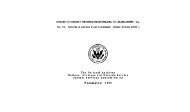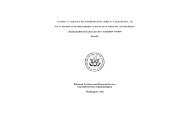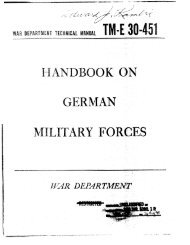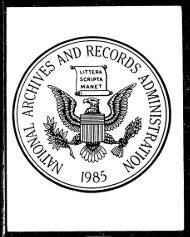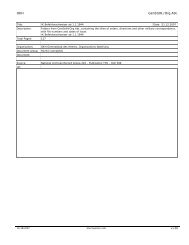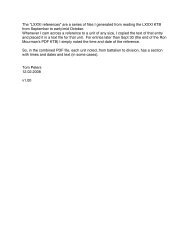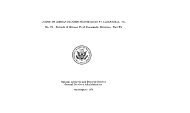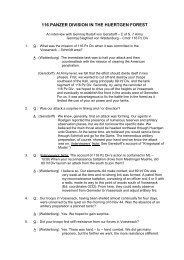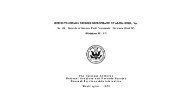miRS-tonpon - Sturmpanzer.com
miRS-tonpon - Sturmpanzer.com
miRS-tonpon - Sturmpanzer.com
You also want an ePaper? Increase the reach of your titles
YUMPU automatically turns print PDFs into web optimized ePapers that Google loves.
German legislation provides for an elaborate system ofnationalised social welfare designed to assist the worker upondischarge from his organisation, as well as to alleviate hisand his family^ hardships while he is still on active service.The Reichsversicherung (Rational insurance) is an informal term underwhich various welfare institutions, including the Krankenkassen, aregrouped together. All workers in the Reich and all OT.-eigenesPersonal are members of the Reichsversicherung. While OTregulations and directives call for free medical care for all personnel,those "benefits are actually provided and financed through thevarious social insurance and hospitalisation institutions of theReich. Workers therefore are subject to the regulations andby-laws of the various Krankenkassen.OT-eigenes Personal are -members of the Betriebskrankenkassedes Reichs, Zweigstelle OT, BERLIN - SIEMENSSTADT. All GermanOT Gefolgschaftsmitglieder are members of the Deutsche Krankenkasse.While serving within the Reich, German Gefolgschaf tsmitglieder receivetheir benefits through the Ortskrankenkassen (local Krankenkassen)French Gefolgschaftsmitglieder were members of the equivalent Frenchagency, the Service Regional Des Assurances Sociales, or if married, theCaisse d f Allocations Familiales. Belgian workers employed in Francereceived benefits through the Deutsche Zentralkrankenkasse in Belgium,with the main office at BRUSSELS and branches at ANTWERP, LIEGE,GHENT, and BRTJQSS.Many OT workers, especially in the Building and Constructionindustries, received higher in<strong>com</strong>es before they became subject toOT tariffs. In all such instances the worker may apply for a familyallowance. Applications are directed to the OT Amt Bau-Zentrale,Hauptabteilung Arbeitseinsatz und Sozialpolitik. After the familyallowance has been approved, it is sent direct to the family of theworker. An allowance of this kind is called Familieribeihilfe.Poles, Ostarbeiter,. and forced labour are excluded from any suchprivileges.If a worker is killed or missing in action, his family receiveHinterbliebenen und Vermisstenbezttge.The following is an illustrative extract from a decree byReichsminister SFEER. dated 21 Dec 1942. (Soziale Betreuung derFrontarbeiter der OT)."Surviving dependents of OT Frontacbeiter, -killed by accidentor in action or otherwise deceased, will be granted allowancesequivalent to the wages of the current month and 3 monthsthereafter. The same payments will continue beyond that perioduntil such time as the dependents claim of benefits (Versorgungs.verfahren) is settled. The maximum amount payable is RM 500."In case of death not proven to have occurred in line of dutyno payments are to be made beyond a period of 3 months.tt If a Frontarbeiter is captured to missing in acction, wagesare sent to his family retreactive to his disappearance.Moreover, the following payments will be made in addition tobenefits derived from the Reichversicherung and from the Army:(a) For wives of Frontarbeiter RM 200.—(b)(c)For each child up to andincluding 18 years of age RM 50. ~For the parents of unmarriedFrontarbeiter RM 100.



